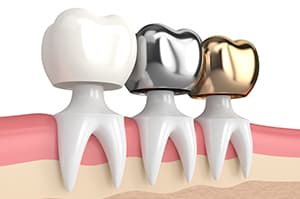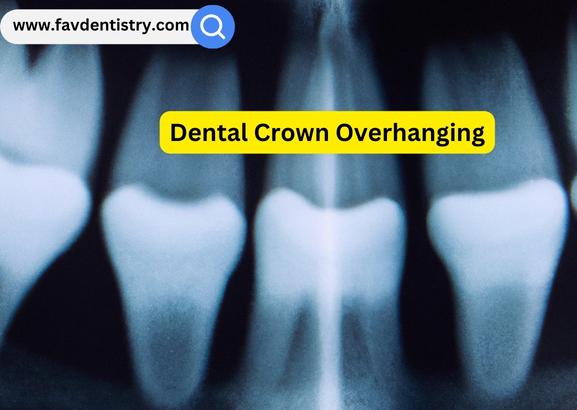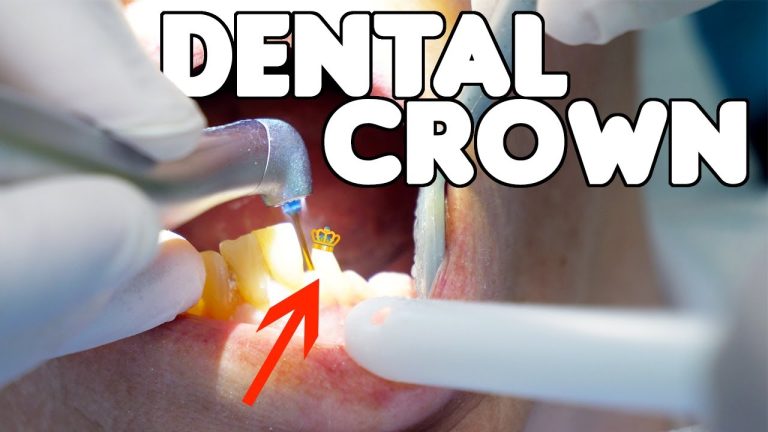Last Updated on 3 weeks by DR. ALBIN SIPES
If a tooth can be saved, a dental crown is the preferred option over extraction. Dental crowns help restore the tooth’s functionality and appearance, while extraction permanently removes the tooth, leading to potential oral health complications.
When a tooth is damaged or decayed, it is crucial to consider the best course of action to maintain oral health. This article will discuss the benefits of dental crowns and why they are preferable to tooth extraction. Dental crowns are a prosthetic solution that can restore a damaged tooth’s functionality and appearance.
On the other hand, tooth extraction involves permanently removing the problematic tooth from the mouth. By understanding the differences between these two options, individuals can make informed decisions about their dental care and overall oral health.
Understanding Dental Crown And Extraction
Dental crown and extraction are both dental procedures used to address different dental issues. Dental crown, also known as a dental cap, is a type of restoration that is placed over a damaged tooth. Its purpose is to provide protection, strength, and improved appearance to the tooth.
On the other hand, dental extraction involves the removal of a tooth from its socket in the jawbone. This procedure is usually performed when a tooth cannot be saved or poses a risk to overall oral health. The process of getting a dental crown typically involves preparing the tooth, taking impressions, and placing a temporary crown before the final restoration is fitted.
Dental crowns can restore the structure and function of a tooth, helping to alleviate discomfort and improve aesthetics. It is important to consult with a dentist to determine whether a dental crown or extraction is the most suitable treatment option for your specific dental needs.
The Importance Of Making The Right Choice
Making the right choice between dental crown or extraction is crucial for oral health. The significance of oral health cannot be underestimated. It has a long-term impact on overall well-being. Factors such as the condition of the tooth and surrounding tissues, the patient’s preference, and the dentist’s recommendation should be considered when deciding.
The procedure, cost, durability, and aesthetics are all vital aspects to evaluate. It is important to make an informed decision based on thorough research and consultation with a trusted dental professional. By choosing the appropriate treatment, one can ensure the preservation of oral health and maintain a functional and beautiful smile for years to come.
Dental crown or extraction? Choose wisely for a healthier and happier mouth.
When Dental Crown Is Recommended
Dental crowns are recommended for various dental conditions. They serve a restorative function by providing support and protection to damaged or weakened teeth. Dental crowns can be used to treat extensive tooth decay, fractures, or large fillings that have compromised the tooth’s structure.
They also play a role in enhancing the appearance of teeth. Dental crowns can cover discolored or misshapen teeth, giving them a more aesthetically pleasing look. By using dental crowns, dentists can restore both the functionality and the appearance of a patient’s teeth, improving their overall oral health and confidence.
Whether it’s to address dental conditions or improve the smile, dental crowns are an effective solution.
Different Types Of Dental Crowns
Different types of dental crowns offer unique benefits for patients. Firstly, porcelain crowns provide both aesthetic appeal and durability. Secondly, ceramic crowns are known for their natural-looking appearance and biocompatibility. Thirdly, metal crowns are strong and offer long-lasting results. Lastly, zirconia crowns combine strength and beauty, making them an excellent choice for patients.
Whether you are looking for an attractive, strong, or biocompatible option, dental crowns can provide the solution you need. These various types of crowns offer different advantages, ensuring that patients can choose the one that best suits their individual needs.
So, if you are considering a dental crown or extraction, make sure to explore the different types available to find the perfect fit for your smile.
Procedure Of Dental Crown Placement
Dental crown placement begins with an initial consultation and examination to assess the tooth’s condition. Following this, the tooth is prepared and a temporary crown is placed. The customized crown is then created based on the patient’s specific needs. Finally, the crown is placed and tested for fit and functionality.
Care And Maintenance Of Dental Crowns
Having a dental crown can be a great alternative to extraction. Proper care and maintenance are essential for the longevity of dental crowns. Oral hygiene practices, such as brushing and flossing regularly, are crucial for keeping the crown and surrounding teeth clean and healthy.
A balanced diet and lifestyle choices can also make a difference in the lifespan of the crown. Avoiding hard and sticky foods, as well as habits like biting nails or chewing ice, can help prevent damage to the crown. Additionally, it is important to schedule regular dental check-ups to ensure the crown is in good condition and any potential issues can be addressed promptly.
By following these guidelines, you can enjoy the benefits of a dental crown for years to come. Keep your smile healthy and beautiful!
When Dental Extraction Is Necessary
Dental extractions become necessary in cases of severely damaged or decayed teeth, impacted wisdom teeth, or crowded and misaligned teeth. In situations where a tooth is extensively damaged or decayed, extraction might be the only viable option to alleviate pain and prevent further deterioration.
Impacted wisdom teeth, which fail to fully emerge through the gums, often necessitate extraction due to the potential for infections, cysts, or damage to neighboring teeth. Additionally, when teeth are crowded or misaligned, extractions may be performed as a prelude to orthodontic treatment, creating space for proper alignment.
These extractions enable orthodontists to optimize the results of braces or clear aligners. Dental professionals carefully assess each patient’s specific circumstances to determine if extraction is a suitable solution. Therefore, it is crucial to consult a dentist to determine whether a dental crown or extraction is the most appropriate course of action for your specific dental condition.
The Procedure Of Dental Extraction
Dental extractions are a dental procedure commonly performed when a dental crown is not a viable option. There are two types of extractions: simple and surgical. Local anesthesia and sedation options can be used to ensure a comfortable experience for the patient.
During the extraction process, the dentist carefully removes the tooth from its socket. After the extraction, it’s important to follow proper aftercare instructions to minimize pain and prevent infection. Regularly rinsing with warm saltwater and avoiding hard or chewy foods can aid in the healing process.
In some cases, a dental implant or bridge can be considered to replace the extracted tooth, restoring both function and aesthetics. Dental extractions are a common solution to dental issues and can help in maintaining overall oral health.
Exploring Alternatives To Extraction
Dental crown or extraction is a common dental dilemma that many people face. Exploring alternatives to extraction is essential to preserve the health and integrity of the teeth. One such alternative is dental fillings, which effectively repair cavities and restore tooth structure.
Another option is root canal therapy, a procedure that can save infected teeth by removing the infected pulp and sealing the root canal. Orthodontic treatments are also available to address misalignment issues, improving the appearance and function of the teeth.
By considering these alternatives, individuals can avoid unnecessary extractions and maintain a healthy smile. It is crucial to consult with a dentist to determine the most suitable treatment option based on the individual’s specific dental condition.
Overall Oral Health And Condition
Assessing the overall oral health and condition is crucial in determining whether a dental crown or extraction is necessary. Understanding the structural integrity of the tooth is essential. By evaluating the level of tooth damage and decay, dentists can make informed decisions.
They can assess if a dental crown can restore the tooth’s function and appearance. A crown can protect a weakened tooth and prevent further decay or breakage. However, in some cases, extraction may be the best option to prevent infection and alleviate pain.
It is important to have a thorough examination to determine the most suitable treatment for maintaining optimal oral health. Regular dental check-ups and good oral hygiene practices can help in identifying potential issues and preventing extensive damage in the long run.
Long-Term Goals And Budgetary Considerations
Long-term goals and budgetary considerations play a significant role when deciding between a dental crown or extraction. Assessing the financial implications is crucial. By evaluating future dental needs, individuals can make an informed decision on the best course of action.
Consider factors such as the longevity of the treatment, contrasting costs, and the impact on oral health. It is essential to weigh the pros and cons of both options while keeping the long-term goals in mind. Additionally, seeking professional advice from a dentist can provide valuable insights into the financial implications of each choice.
By thoroughly considering these factors, individuals can make a decision that aligns with their budget and long-term dental goals.
Consultation With Dental Professionals
When deciding between a dental crown or extraction, it is crucial to seek expert opinions before making a final decision. Consulting with dental professionals will provide valuable insights and guidance. In particular, it is important to consider seeking second opinions to ensure that you have explored all possible options.
Second opinions can offer different perspectives and treatment recommendations, helping you make an informed choice. By obtaining multiple viewpoints from dental experts, you can be confident that you are making the best decision for your oral health. So, before making any decisions regarding dental crowns or extractions, make sure to consult with dental professionals and seek second opinions to ensure you receive the most accurate and informed advice.
Frequently Asked Questions Of Dental Crown Or Extraction
Can A Dental Crown Be A Better Option Than Extraction?
Yes, a dental crown can be a better option than extraction for certain cases. If the tooth has enough structure to support a crown, it can be saved, preserving the aesthetic appeal and functionality of your smile.
How Long Does A Dental Crown Last?
On average, a dental crown can last between 10 and 15 years with proper care and maintenance. However, the longevity of a crown also depends on factors such as oral hygiene, regular dental check-ups, and avoiding habits like teeth grinding.
Is Extraction Necessary If A Tooth Is Severely Decayed?
Extraction is not always necessary for severe decay. Dentists will first try to save the tooth through treatments like root canal therapy or placing a dental crown. However, if the decay is too extensive and cannot be repaired, extraction may be the recommended solution.
How Painful Is The Dental Crown Procedure?
Getting a dental crown is usually a painless procedure. Your dentist will numb the area before starting any work, ensuring minimal discomfort. After the procedure, you may experience some sensitivity, but it can be managed with over-the-counter pain medication.
What Are The Benefits Of Choosing Extraction Over A Crown?
Extracting a tooth may be necessary if it poses a risk to your overall oral health, such as in cases of severe infection or overcrowding. Benefits of extraction can include relief from pain, preventing further damage, and creating room for orthodontic treatment.
Can A Dental Crown Fix A Cracked Tooth?
Yes, a dental crown can help fix a cracked tooth by providing support and protecting it from further damage. The crown acts as a protective covering that holds the cracked tooth together, ensuring stability and enhancing its appearance.
Conclusion
Ultimately, the decision to choose between a dental crown or extraction is a critical one that should be made with careful consideration. While a dental crown offers a versatile solution, providing protection and durability to a damaged tooth, extraction may be necessary in cases of severe decay or infection.
However, it is essential to consult with a dental professional who can evaluate the specific circumstances and recommend the most appropriate course of action. By weighing the potential benefits and drawbacks of each option, patients can make an informed decision that best suits their oral health needs and long-term goals.
Remember, maintaining healthy teeth and gums is key to overall well-being, so prioritizing regular dental check-ups and practicing good oral hygiene habits is essential. Embrace the opportunity to invest in your smile and enjoy the lifelong benefits of optimal oral health.




